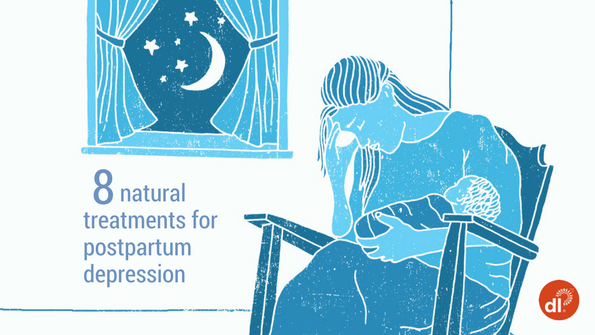8 natural treatments for postpartum depression
In the first few weeks after having a baby, 80 percent of new mothers experience feelings of sadness that eventually go away on their own, according to the National Institute of Mental Health. Drops in estrogen and progesterone levels after childbirth leave women feeling weepy and fatigued.
“It’s like you’re having a bad case of PMS,” says Diane Sanford, PhD, coauthor of Life Will Never Be the Same: The Real Mom’s Postpartum Survival Guide (Real Moms Ink, 2010). But up to one in seven moms goes on to suffer the more severe symptoms of postpartum depression, which may include feeling hopeless, irritable or overly anxious, plus crying more than usual and having difficulty bonding with the baby.
Postpartum depression is different from “normal crazy,” which is how Sanford describes a woman’s typical mindset after having a baby. “That’s just getting used to the physical and emotional and relational demands that a new baby brings,” she says. “You’re not on your own schedule anymore. You have this person who’s totally dependent on you, which is a source of stress for a lot of women.”
Instead, postpartum depression resembles clinical depression. Symptoms of sadness deepen and do not improve over time.
“For most women, it’s very scary, there’s a sense of loss of control,” says Hilary Waller, a psychotherapist with The Postpartum Stress Center in Rosemont, Pennsylvania. “There’s this idea that you’re never going to feel like yourself again. I think some women really struggle with the idea of, ‘Should I have had this baby? Am I going crazy?’ Postpartum depression feels bad and overwhelming and isolated.”
Postpartum depression usually requires treatment, ranging from counseling or talk therapy to antidepressants, or both. But for mild postpartum depression, in conjunction with these treatments, or for women who prefer to avoid medication while breast-feeding, for instance, some natural remedies can also make a difference.

